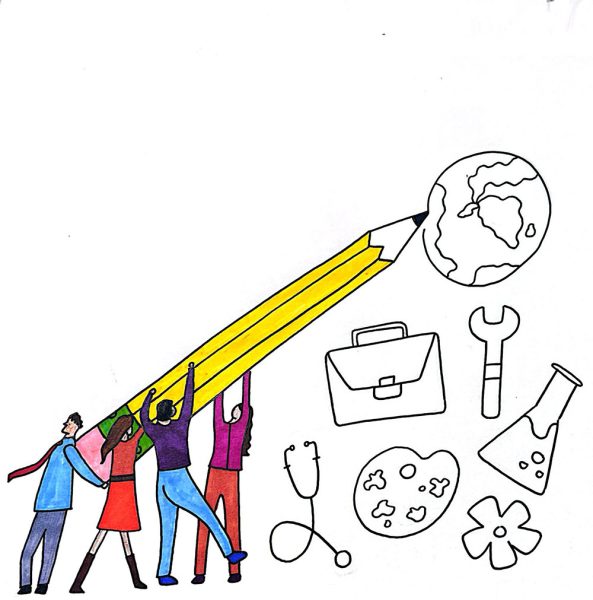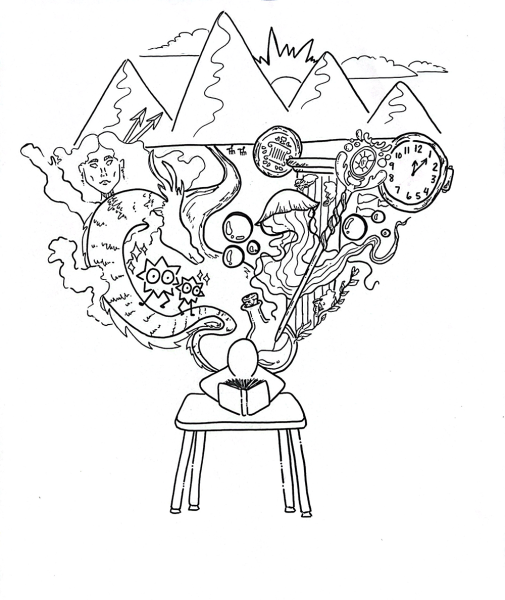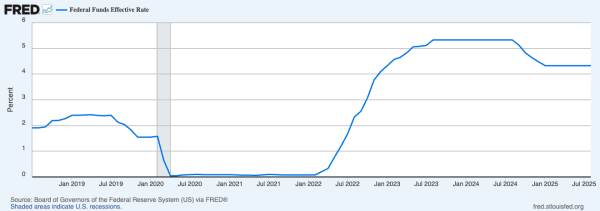In the Age of New Media, Significant Stories are Overshadowed
Meet Ranomasy, a mother from Tsihombe, Madagascar. Like most mothers in Madagascar, she struggles on a daily basis to feed herself and her child. Nicholas Kristof of The New York Times talked with Ranomasy at an emergency feeding station where Catholic nuns were trying to save her starving son.
Ranomasy told Kristof that she had carried her 18-month-old son for 12 hours, walking barefoot through a desert to reach the feeding station. She has no shoes, since, like most villagers in Madagascar, she has already sold everything of value to survive.
Tragedies like this happen all too often in Madagascar. According to the World Food Programme, 62 out of every 1,000 children born in the country die before the age of five.
Poverty is as much of a rampant issue as premature deaths. According to The World Bank, the GDP per capita in Madagascar is $401.836 USD, a mere .7% of the United States’ GDP per capita of $56,115.718 USD.
Meet the Oromos, the largest ethnic group of Ethiopia. Since April 2014, the Oromos have been protesting systematic persecution by their corrupt government. These protests turned ugly around Aug. 6 when police used gunfire to disperse anti-government demonstrators in various parts of Ethiopia; 104 people were killed.
The final straw, according of the Ethiopian government, came in the form of a stampede on Oct. 2. The stampede was a result of police firing “warning shots” after “troublemakers” allegedly attacked elders during an Oromo holy festival. A day meant for happiness and rejoicing in the Oromo community ended with the death of 52 innocent Oromos.
Since Oct. 9, there has been a six month state-of-emergency in Ethiopia. This state-of-emergency has been used to justify the suppression of the Oromo’s basic rights.
You may be wondering why we haven’t heard of these tragic events. The answer, at least in part, can be attributed to our current media climate in which the number of clicks is valued more than responsible journalism.
In this age of New Media, Ranomasy’s daily struggle for survival and the plight of the Oromo people are overshadowed by the latest inappropriate comment made by an egotistical maniac with a bad hairdo.
The continually-disputed size of Trump’s Inauguration is apparently more important than the millions of lives in Ethiopia, Madagascar and so many other corners of the world. I’m pretty sure that the only way most Americans would pay attention to Madagascar and Ethiopia would be if President Trump tweeted about them.
In this age of New Media, anyone with a computer, an internet connection and time on their hands can call themselves a journalist. Since there is a lower threshold for entry, people can become journalists without having an adequate understanding of journalism methods and ethics.
Without that understanding, these “journalists” can publish stories with an eye towards sensationalism and without regard for ethics or the truth.
We as media consumers also have a responsibility to seek out less of this sensational, over-fabricated news and more important news. Reputable news organizations, such as ProPublica, are producing important watchdog journalism, shining light on stories that would otherwise go unnoticed. Too many of us prefer to click on the sensational stories, rewarding pseudo-journalists with more clicks and more ad revenue.
Let me make this clear: I’m not taking a stance against New Media nor discouraging people from viewing news topics that seem funny or frivolous. Rather, I’m asking readers to reconsider what we value most: trending topics or investigative journalism.
Take, for example, stories from a traditional source such as The Washington Post compared to a New Media source such as Buzzfeed.
The Washington Post published a story Jan. 8 about how Brexit is causing a worker shortage in England that may continue for many years. This shortage could lead to crops rotting in the fields and a substantial food shortage in Britain, leading to inflation. Given Trump’s trade and immigration policies, could the same thing happen here?
Buzzfeed, on the other hand, published a story around the same time about how CNN anchor Don Lemon got his ear pierced during the during the CNN New Year’s Eve live broadcast. Really?
Beyond those articles there are vast differences between the two sources. The Washington Post also covers trendy topics, but it does not lose sight of its primary mission of informing the public and investigating government institutions.
Buzzfeed’s content, on the other hand, is driven by clickbait headlines with little concern for journalism ethics. The articles focus on topics that are trendy, flashy and controversial in order to bring in a lot of eyeballs. Although, to be fair to Buzzfeed, they do squeeze some news between the clickbait and the quizzes, but it seems at times like an afterthought.
When Buzzfeed attempted to cover more serious stories, they also stumbled into ethically questionable terrain. One example of this was their willingness to publish an unverified dossier with information about Trump’s alleged “deep ties” to Russia. As The New York Times article covering the issue put it, Buzzfeed’s decision to publish the dossier was a “break from typical journalistic practice.”
While the issue should be covered, it is irresponsible for Buzzfeed to publish unverified information. This lack of concern for the truth is exactly why many in the public have come to distrust the media.
Buzzfeed is just one of many ‘alternative’ news sources shaped by the New Media landscape.
Another one of these alternative news sources is Infowars. This website caters to a younger, far-right demographic. While Infowars and Buzzfeed represent opposite ends of the political spectrum, they actually have a lot in common. Both are extremely biased, controversial and clickbait-y, and both target niche demographics.
Social media sites such as Twitter and Facebook also play a role. Their algorithms allow the dissemination of fake news and generally biased articles that grotesquely distort the truth.
Social media has become the most common platform for adolescents to view news and is probably the biggest reason sensational news is crowding out real, important news.
Beyond the problem that irresponsible news sources divert attention away from important issues, their subjective opinions influence younger audiences and cause increasing polarization in America.
Thus, the cycle repeats where important issues lose ground to adolescents and juvenile adults bickering over substantially less important issues. This creates problems since journalism isn’t covering important issues and thus fails to protect the public.
This trend was apparent in the presidential election coverage as well. Sensational and controversial news overshadowed coverage of candidates’ policies on important issues facing our country.
Ultimately, this coverage may have contributed to the surprising results and affected democracy negatively in the process as too many voters selected a candidate based on the sensation and controversy surrounding them instead of voting for a candidate based on policies and experience.
Journalism is the protector of the public and without that our very democracy is lost.

Tyler Pohlman has been writing for The Beachcomber since the fall of 2016. He has written several in-depth features and editorials about issues that affect...









![“My parents have always said that education is important. My parents are Chinese immigrants, I'm Chinese American, [and that's a] value that has always been ingrained in our community,” said Senior Lyndia Zheng, pictured with Tony Zheng](https://bcomber.org/wp-content/uploads/2025/10/DSC_4244-600x400.jpg)

